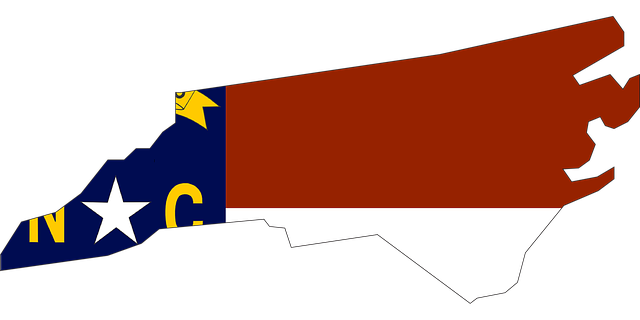In North Carolina, facing spam calls is a common issue. The Telemarketing Consumer Protection Act (TCPA) provides powerful protections against automated or prerecorded calls without consent. To stop these calls effectively, individuals should:
1. Familiarize themselves with TCPA rights and local laws.
2. Block numbers, register on Do Not Call lists, and consult reputable Spam Call Law Firms or TCPA Lawyers in North Carolina.
3. Document spam incidents for filing complaints.
4. Use call-blocking apps and be cautious about sharing phone numbers.
Successful strategies involve engaging specialized lawyers to halt unwanted calls, potentially securing monetary damages, and empowering individuals to take control of their digital privacy.
In the digital age, malicious calls, or spam calls, have become a persistent nuisance in North Carolina. Understanding these calls and their legal implications under the Telephone Consumer Protection Act (TCPA) is crucial for residents seeking to protect their privacy. This article explores effective strategies to combat spam calls, from identifying common types to engaging a specialized law firm. We delve into Monroes methods, showcasing success stories that offer hope and guidance on how to stop spam calls in North Carolina. For those considering legal action, learning about TCPA cases and the role of lawyers can be empowering.
Understanding Malicious Calls and the TCPA in North Carolina
Malicious calls, often referred to as spam calls, are a common nuisance in North Carolina, affecting countless residents. These unwanted phone communications can range from prerecorded messages promoting products or services to live salespeople trying to sell items or offer misleading information. Understanding the nature of these calls and the legal framework surrounding them is essential for those looking to protect themselves.
The Telemarketing Consumer Protection Act (TCPA) is a federal law designed to curb abusive telemarketing practices, offering consumers in North Carolina significant protections. This legislation prohibits companies from making certain types of automated or prerecorded phone calls to residents without their prior consent. If you’re facing a deluge of spam calls, knowing your rights under the TCPA and seeking legal advice from a reputable spam call law firm or lawyer for TCPA North Carolina can empower you to take action. These professionals can guide you on how to stop spam calls effectively, ensuring compliance with local laws and providing lasting solutions to this persistent problem.
Common Types of Spam Calls and How to Identify Them
Spam calls are a common nuisance in today’s digital era, with various types targeting individuals across North Carolina. Understanding these patterns is the first step in defending against them. One frequent form is marketing calls, where businesses use automated systems to make mass phone calls promoting their products or services. These calls often violate consumer privacy laws, such as the Telephone Consumer Protection Act (TCPA). Another prevalent type is scam calls, designed to trick recipients into providing personal information or money. Scammers may pose as government agencies, banks, or reputable companies to gain trust.
To identify these calls, look out for unknown numbers, frequent callers, or those using non-standard phone numbers. Automated voice messages, prerecorded announcements, and urgent requests for immediate action are common indicators. With the TCPA law firm in North Carolina leading the charge, victims can take action by blocking numbers, registering on Do Not Call lists, and consulting with lawyers specializing in spam call litigation to understand their legal rights and options for seeking compensation.
Legal Options: Engaging a Lawyer for TCPA Cases in NC
If you’re receiving spam calls in North Carolina, understanding your legal options is crucial. The Telemarketing and Consumer Protection Act (TCPA) provides consumers with protections against unsolicited phone marketing calls. One effective step is to consult a lawyer specializing in TCPA cases. In North Carolina, such lawyers can help you navigate the legal system and take action against companies violating your rights by placing unwanted spam calls.
Engaging a lawyer experienced in TCPA laws is beneficial for several reasons. They can guide you through the process of filing a complaint with the Federal Trade Commission (FTC) or bringing a private lawsuit under the TCPA. These actions can lead to monetary damages and injunctive relief, effectively stopping the spam calls. Additionally, these lawyers ensure that all legal procedures are followed correctly, increasing your chances of a favorable outcome. With their expertise, you’ll have a stronger position against violators seeking to halt spam calls in North Carolina.
Effective Strategies to Stop and Manage Spam Calls
Spam calls are a common nuisance, but there are effective strategies to stop and manage them. In North Carolina, as in many other states, there are strict laws in place to protect residents from unwanted telemarketing calls, including spam. The Telephone Consumer Protection Act (TCPA) prohibits companies from making automated or prerecorded calls to phone numbers on the National Do Not Call Registry unless the caller has prior express consent from the recipient. If you’re experiencing a surge of spam calls, the first step is to register your number with the National Do Not Call Registry. This federal list restricts telemarketers from calling your number, although some organizations are exempt.
Additionally, consider using call-blocking apps or tools offered by your phone service provider. These can filter out known spam numbers. You can also take proactive measures like providing your number only to trusted entities and being cautious when sharing it online. If you’re already receiving spam calls, document the incidents, including timestamps, call content, and any identifying information about the caller. This documentation may be crucial if you need to file a complaint with a spam call law firm in North Carolina or seek legal advice from a TCPA lawyer.
Success Stories: How Monroes Methods Have Helped North Carolinians
Monroe’s methods have proven highly effective in helping North Carolinians manage and reduce malicious calls, offering a much-needed respite from the deluge of spam calls that many residents face daily. Many success stories emerge from their work, showcasing the tangible impact on individuals’ lives. For instance, several clients have reported significant decreases in unwanted call volumes after implementing Monroe’s strategies. These tactics not only educate recipients on blocking techniques but also empower them to navigate the complex legal landscape surrounding the Telephone Consumer Protection Act (TCPA).
North Carolina residents, particularly those plagued by persistent spam calls, have found solace through this firm’s innovative approaches. The success stories include individuals who were once overwhelmed by relentless marketing calls, now enjoying a calmer environment with fewer intrusive messages. This transformation is a testament to Monroe’s commitment to empowering clients and fostering a safer digital space in North Carolina.






